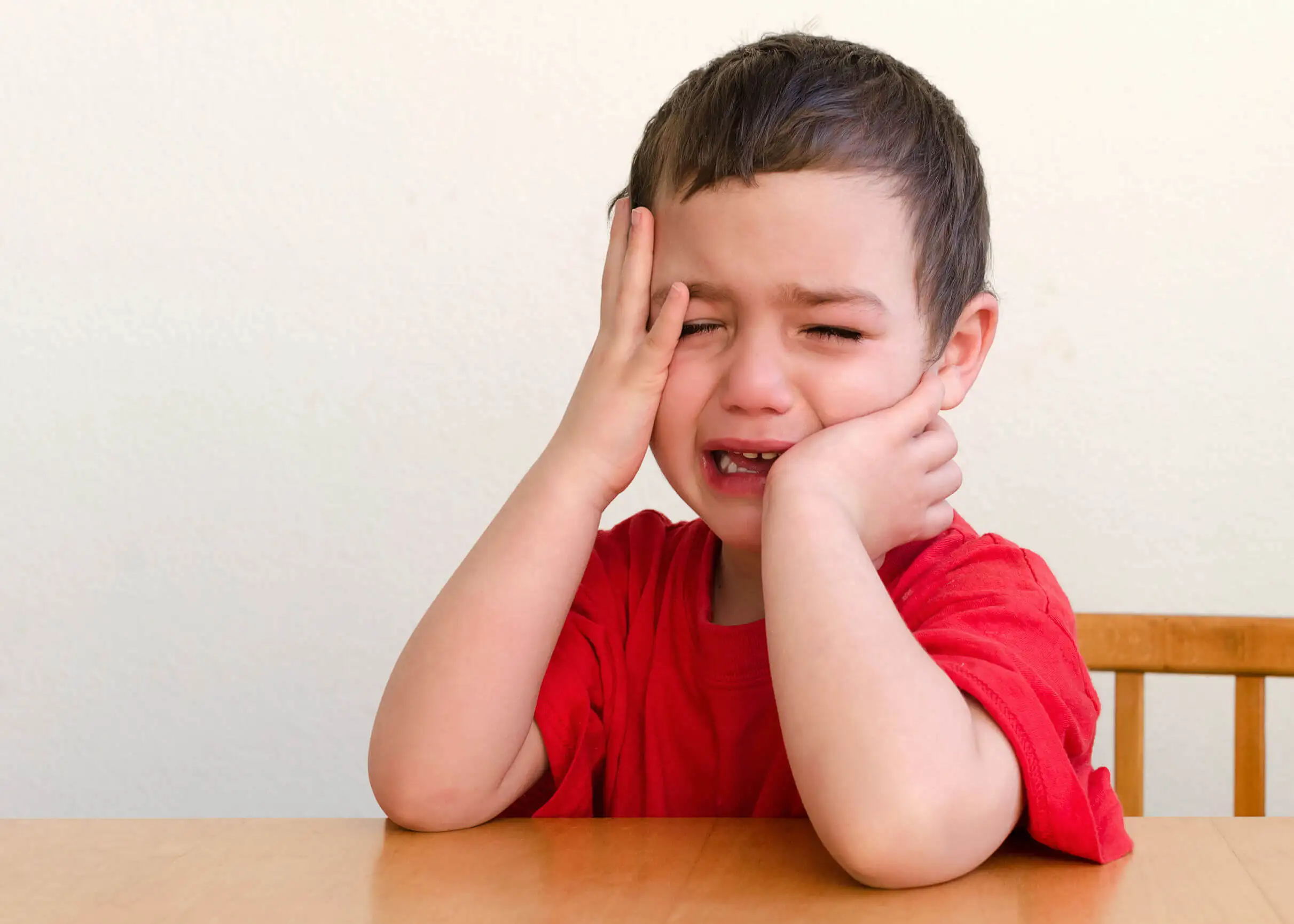7 Phrases to Avoid During Children's Tantrums


Written and verified by the psychologist Elena Sanz
Tantrums are common during early childhood, especially between the ages of 2 and 4. Most children of this age have this type of emotional reaction that appears very exaggerated to adults. Parents are often stunned by their children’s anger, crying, and resistance when they’re refused something they want or forced to do something they don’t want to do. Although these situations are difficult to handle, there are certain phrases to avoid during children’s tantrums.
It’s understandable that sometimes you may feel overwhelmed, that you don’t know how to respond or how to redirect the attention of your child. However, you have to keep in mind that a tantrum isn’t meant to annoy you or make you uncomfortable but is a natural reaction of a child claiming his or her autonomy.
As parents, our task is to understand these emotional outbursts and accompany them and teach children to channel what they feel in healthier ways. In this regard, there are certain phrases that you should avoid during tantrums.
This is not only because these phrases will not help you to get the child to calm down but also because you can cause emotional damage and deteriorate the bond with your children. Here are some of them.
The phrases you should avoid during children’s tantrums
To summarize, let’s remember that from the age of 2, children begin to perceive themselves as individual beings. They begin to understand that they have their own opinions, desires, and needs and seek to assert them. This is why they say “no” to nearly any adult proposal, resist nearly everything, and firmly express their desires.
Although we may understand that this is natural and that it’s part of this evolutionary stage of development, parents must set boundaries. Accompanying a tantrum doesn’t imply giving in to the child’s whims, but validating what he/she feels and giving him/her space to express it.
So, what phrases should we take out of our vocabulary?
1. “Shut up and stop crying!”
This is the phrase that most often comes to our minds and mouths when a child’s crying gets on our nerves, when we don’t understand it, or it goes on too long. We just want the child to shut up because it really is annoying, it stresses us out not knowing how to make him or her feel better, and perhaps because other people are watching us.
However, this phrase doesn’t actually work. How would you feel if your partner or your friend told you to shut up and stop crying at a hard time for you? I’m sure you would feel invalidated and hurt. That’s how children feel, too.
During a tantrum, they need to express themselves, cry or scream, and know that the adult is there to understand and accompany their feeling. They’re not there to teach and encourage them to repress it.

2. “You’re embarrassing me”
It’s very understandable that we’re embarrassed when our child has a tantrum in public. The prying and accusatory looks are never far away. However, it’s important to put people’s opinions aside and focus on what your child needs.
By telling the child that he or she is making a fool of him or herself or embarrassing us, we can make him or her feel very bad. His or her emotional reaction isn’t deliberate; the child just doesn’t know how to regulate him or herself better.
Hearing this may make the child feel humiliated. He or she may even come to believe that showing emotions is shameful and penalized. He or she may then tend to hold back in the future.
We think you may also enjoy reading this article: Shyness in Children: 6 Tips to Help Them Overcome It
3. “It’s no big deal”
How many times have you thought this when seeing your child crying in despair at having to leave the park or not being able to take a toy to school? From an adult’s point of view, the situations a child faces seem insignificant, but you have to understand that for them they are important to the extent that they awaken their emotions.
By telling your child that what is happening to them is “no big deal”, you are once again invalidating their feelings. What they need is to feel understood, to help them understand why they feel this way, to name their emotions and to manage them. If you downplay their importance, you lose a valuable opportunity to educate in emotional intelligence.
4. “If you keep crying, you will be punished.”
Threats and punishments arise very often, especially as a result of parents’ desperation. Adopting this attitude may have a short-term effect (the child, out of fear of the consequences, stops crying). However, it doesn’t teach them anything crucial.
The child isn’t learning to regulate his or her emotions – only to hide them and obey. This will bring the child problems in the future and will also deteriorate your bond between.
Like this article? You may also like to read: What to Do When Children Prefer One Parent Over the Other
5. “I don’t love you when you behave this badly”
Children need the attention, approval, and love of their reference figures. Because of this, they’re capable of modifying their behavior if that affection is threatened.
However, by saying this phrase to your child, you’re implying that your love is conditional and that you don’t love them for who they are but for what they do. This creates the idea that it’s necessary to please others in order to be appreciated. This is a pattern that can cause you much suffering in your adult life.
6. “You’re not a baby anymore to behave like that”
This is one of the main phrases you should avoid during children’s tantrums, mainly because it makes no sense. When children grow up, sometimes we make the mistake of thinking that they’re miniature adults. Thus, we think they have abilities they really don’t have yet, and we expect reactions they can’t give us.
Indeed, your 4-year-old child is no longer a baby; he or she already knows how to talk, and crying is not his or her only means of communication. However, he or she still doesn’t have the knowledge, cognitive maturity, or emotional tools to manage certain situations.
Don’t make the child feel guilty or ridiculous for something he or she can’t control. Rather, teach and guide him or her so that he or she can handle him or herself differently from now on.

7. “If you calm down, I’ll give you what you want.”
Giving in to children’s whims is what many parents resort to when they don’t know what else to do. As long as the child shuts up, stops crying or stops suffering, they push aside the boundaries that they themselves had set and fulfill the child’s wish. Sometimes, they even promise some kind of reward or prize if they stop crying.
This permissiveness isn’t healthy. Boundaries are necessary, and the child needs to learn to tolerate frustration.
Avoid these phrases during children’s tantrums to improve your bond with your child
In short, handling children’s tantrums is a complicated matter that requires patience, understanding, and dedication. However, they’re excellent opportunities to teach important values and tools and to strengthen your bond with your children by offering them respect, a listening ear, and love.
All cited sources were thoroughly reviewed by our team to ensure their quality, reliability, currency, and validity. The bibliography of this article was considered reliable and of academic or scientific accuracy.
- Baumrind, D. (1967). Child care practices anteceding three patterns of preschool behavior. Genetic Psychology Monographs, 75(1), 43–88.
- Díaz, ., & Bonet, C. (2005). Las rabietas en la infancia: qué son y cómo aconsejar a los padres. Revista Pediatría de Atención Primaria, 7(25).
This text is provided for informational purposes only and does not replace consultation with a professional. If in doubt, consult your specialist.








